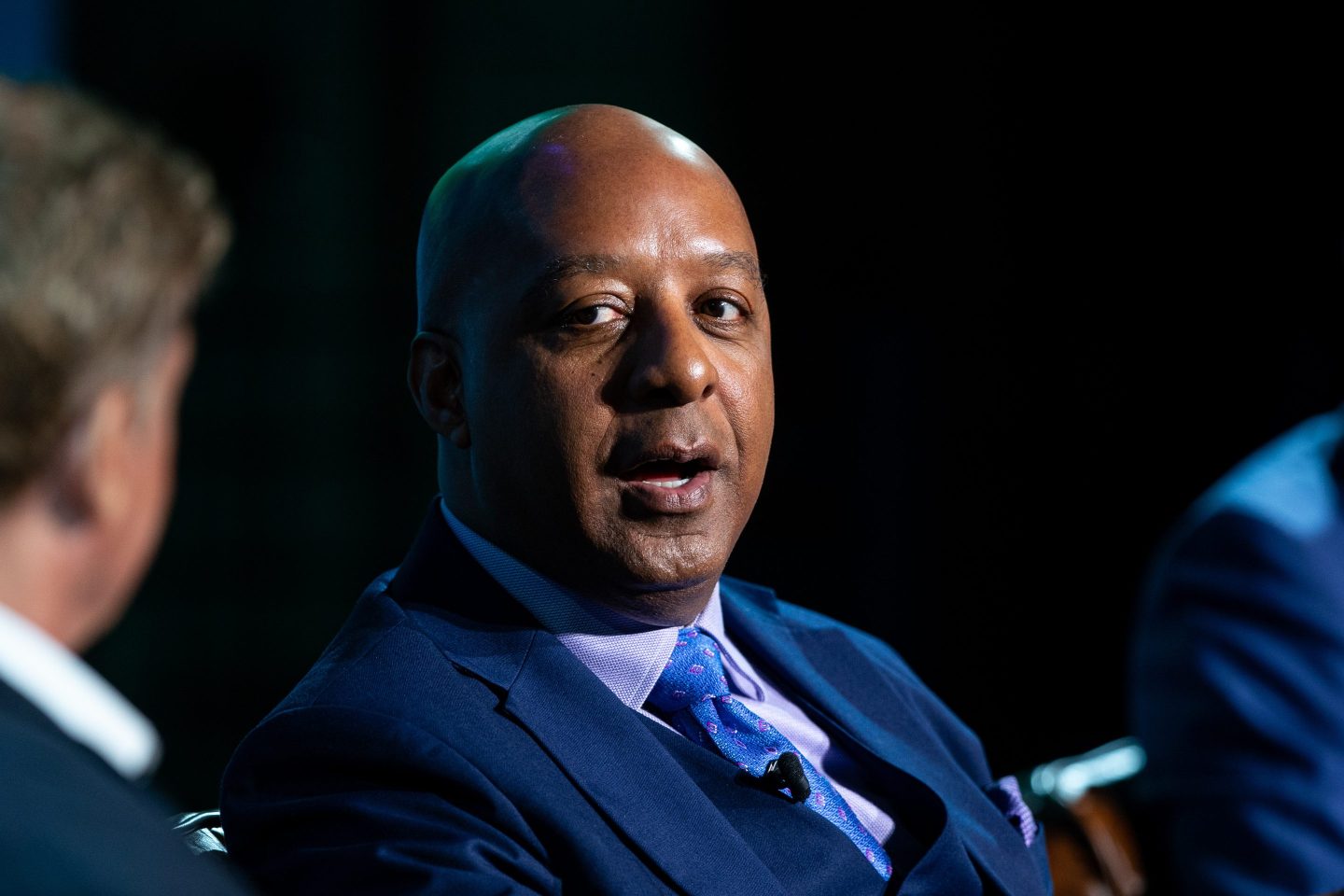Most professionals will be laid off, fired, or ousted at some point in their careers—it’s a universal, soul-crushing experience shared by even the greatest of leaders, including Oprah Winfrey, Steve Jobs, and Mike Bloomberg. The CEO of the billion-dollar software company Scope3, Brian O’Kelley, spent most of his 20s job-hopping after getting fired over and over again.
“For many of us who are entrepreneurs, we don’t listen to anybody, and we just make a bunch of mistakes,” O’Kelley tells Fortune’s Orianna Rosa Royle. “I go back to myself in my 20s, I wasn’t going to listen to anyone. I thought I knew everything, I burned a lot of bridges, and spent a lot of time learning the hard way.”
After graduating from Princeton University in 1999, the serial entrepreneur was ready to take on the tech industry. O’Kelley’s first defeat came at a little consulting company, where he tried his hand at launching an internet commerce company. It failed, and so he was fired (by his best friend, no less). “It was pretty embarrassing to go to Princeton and six weeks after college, be unemployed on your dad’s sofa.” he recalls.
Unemployed and stuck living back at his parents’ home, he made some calls to former mentors begging for a job. Luckily, an opportunity swiftly came up, and he jumped to a vice president role at IT consulting firm LogicSpan—but again, the stint was short-lived.
The dot-com crash hit, and the company had to be sold to another consulting firm. Every single employee’s job was saved, but O’Kelley put his own role on the chopping block after he let his boss know just how betrayed he felt by the sale.
“I was like, ‘I worked my butt off for you, I trusted you—how dare you sell the company?’ I kind of threw a fit. I definitely handled it poorly, and the guy who hired me fired me,” he adds.
“He taught me so much, and I just couldn’t get my head around the idea that I wasn’t the center of the world. I needed a Galileo to come in and just smack me upside the head and say, ‘It’s the dot-com crash. People are laying off hundreds of thousands of people.’”
The third layoff that cost him ‘tens of millions’ of dollars—but it inspired his big break
At this point, O’Kelley was only a few years into his post-grad career and had already been sacked twice. But he wasn’t deterred, and actually landed a promotion: An executive vice president role at Cetova, a corporate performance management business.
“That one I didn’t get fired from, because I quit in a huff,” he says, before adding it landed him an even bigger opportunity. O’Kelley pivoted to his first C-suite role as CTO of online advertising company Right Media, where he helped invent the ad exchange and technology that would later become programmatic advertising.
But in 2007, he got fired moments before Yahoo snapped up the company for $850 million—and it was the best thing that ever happened to him.
“I very wisely walked into the boardroom before they took the offer and said, ‘You all would be freaking crazy to take this deal.’ And so they fired me. And getting fired cost me tens of millions of dollars,” O’Kelly recalls.
“I was so angry about getting fired that I started AppNexus the second my non-compete was over, and spent the next four years taking every single customer back from Right Media,” he adds. “That’s a pretty furious, intense way to spend my first 10 years out of college. I still haven’t had a good exit from a company.”
Becoming his own boss turned out to be the best career move O’Kelley ever made. A decade after founding the ad-tech company he sold it to AT&T for $1.6 billion—and became a multimillionaire in the process. He then went on to cofound and lead Scope3, which achieved a valuation of $100 million in 2023 after a $20 million funding boost.
Advice for Gen Z: getting fired makes you a better leader
Entrepreneurs hoping to make a name in the tech scene may hear O’Kelley’s early career journey and wince at the repeat firings and uncertainty that came with it. But that’s exactly what the 48-year-old CEO advises that Gen Zers today, who are struggling to get a footing and even getting fired months into new roles, should embrace.
“I got fired three times in my early 20s, but I was getting fired for the right reasons in a sense of trying to figure out who I am—and that self awareness, that journey to wisdom, that journey to meaning and purpose, that is the point of life, is the point of business,” O’Kelley explains.
“Other folks will recognize you in that journey, and they’ll hire you…That’s the point of being young, is to find the path to being old and wise.”
The only non-negotiable? Learn from it all—the good, the bad, and the ugly. Whether it be from shadowing senior staffers, volunteering to do the grunt work, or even getting fired, the Gen X executive says experience builds the muscle Gen Z will need to lead.
“For anybody early in their career, investments you make in yourself early pay off big time later,” O’Kelley says. “I’ve worked for 30 years as an entrepreneur. I’ve seen everything—or at least a lot of things. I’ve made so many mistakes. I’ve worked with so many amazing people. The richness of everything I’ve learned gives me a massive advantage at this point in my life.”














